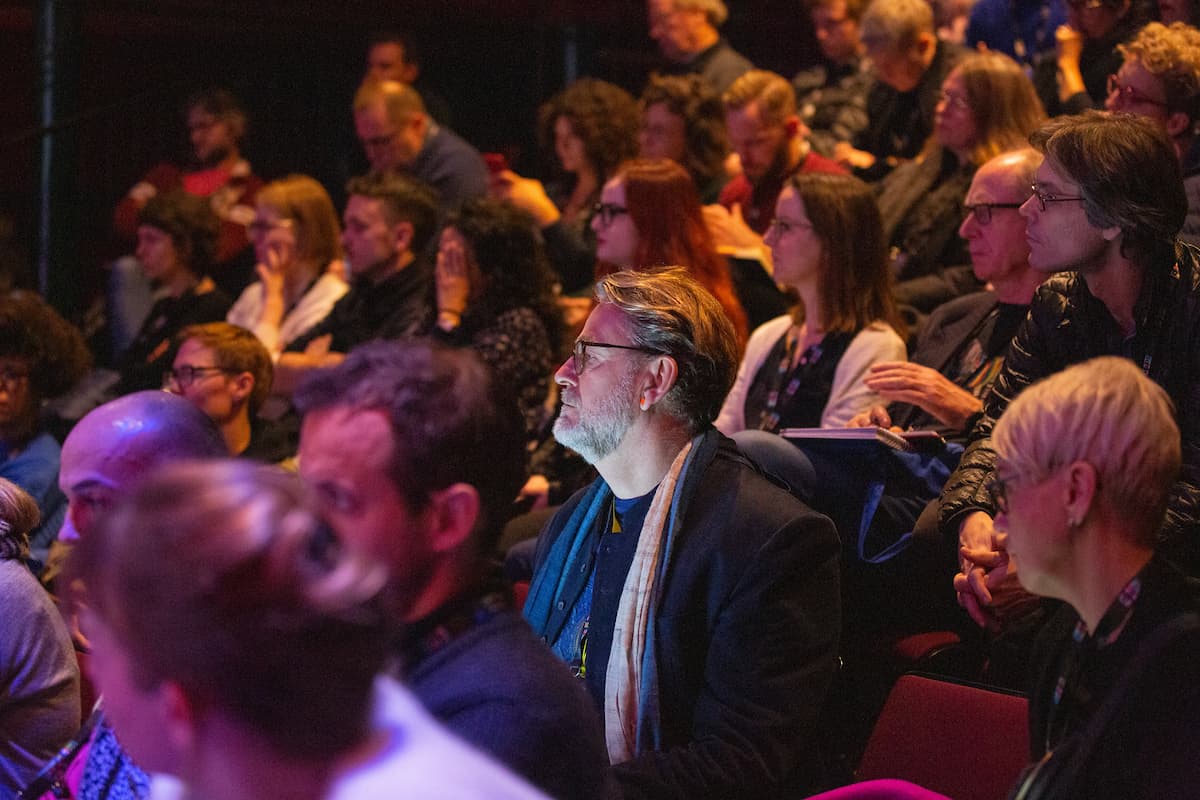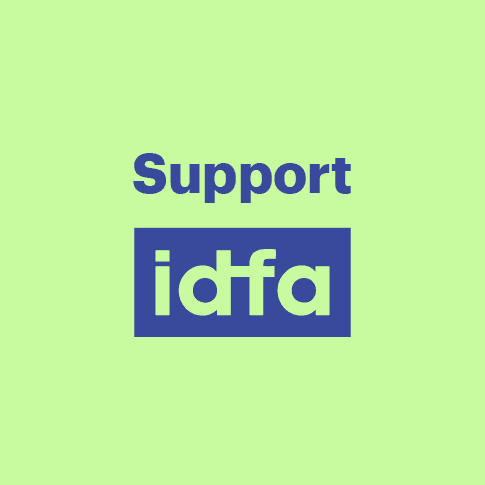
Rebecca Day: Filmmakers need mental health support funds
Psychotherapist and producer Rebecca Day on the growing need for psychological and emotional support to filmmakers in the documentary industry.
Since the first year of the COVID pandemic, the issue of mental health has come to the fore of the conversation in the film industry. Forced isolation gave a physical manifestation to the problems that filmmakers have been facing all along: in addition to issues inherent to all underfunded, independent creators, such as financial insecurity, tight deadlines, low budgets, and long, often unspecified working hours, many kinds of psychological and emotional tolls are further exacerbated in the documentary field. These stem from the filmmakers’ dedication to the film and protagonists who often belong to vulnerable groups. The feeling of responsibility to tell their stories and protect them often overrides their concern for their own well-being.
This is where UK-based psychotherapist and producer Rebecca Day comes in with her organization Film in Mind, which advocates for better mental health in the film industry, providing consultation and therapy for the filmmaking community. She founded it in 2018, after her own experience as impact producer on Scottish Documentary Institute's documentaries about end of life and palliative care, I Am Breathing and Seven Songs for a Long Life.
Before embarking on a trip to Sheffield DocFest, where she was to take part in panels on bullying and harassment and centers of power in the industry, she tells us about this experience on a Zoom call.
"I was the main point of contact between the contributors in the films but also with the audience. I talked with so many people on a daily basis about what screening the film could mean to them, and in these conversations, they were sharing their experiences with me. When these films were over, I felt this deep sense of loss in terms of the type of work that I was doing, and I really wanted to explore that further."
For the past three years, Day has been running workshops at IDFA Project Space (and before that, IDFAcademy), where up-and-coming filmmakers develop their documentary films.
"As we know, with documentaries, we're often compelled to make a film because we connect with something deep in the subject matter or something that we experienced ourselves, so there's a profound connection when you even begin to make a project," she says.
Understanding your own experience
When making a documentary film, there is often a therapeutic process embedded in it for the filmmaker, even when the subject matter is not inherently personal. Sometimes they will go into a project with a more or less conscious need to untangle some of their own psychological dilemmas. Even if this is not the case, close contact with the protagonists and collaborators brings along complex emotional experiences that they have little capacity to deal with because they are focused on making the film.
"When you put yourself through something like that, it's really important to understand what's happening," Day explains. "Filmmakers can intellectualize things—they understand what they're going through on a logical level—but when you're invited to connect with it consciously on a psychological or emotional level, it's a very different experience. That's where therapy or supervision can be very useful."
Supervision is a model of support that comes from the therapeutic world and from a lot of caring professions, such as nursing or occupational health. The difference between therapy and supervision is that the latter is the place where the client brings in professional issues as opposed to personal ones.
"You still bring yourself into it but you're looking at duty of care to your participants, relationships within your film practice, and ethical dilemmas that come up," she explains.
Day says she sees documentary filmmaking as having three veins: creative work, strategic work (i.e., producing, funding applications, distribution, and networking), and psychological or relational work.
"This is all that work that happens between the director and the participants and the core team, but also the relationship that you have with yourself, the filmmaker—that gets very little attention, and it's such an integral part of the work. That's what I'm interested in, to help filmmakers pay attention to that," she says.
Setting boundaries
This issue is closely related to the responsibility that filmmakers often feel towards their protagonists, especially if they come from vulnerable groups.
"Filmmakers keep telling me that their mental health doesn't matter because the person they're filming with is so vulnerable, and they have to take care of them. But if you don't take care of yourself, how are you going to take care of them? If you collapse, everything else collapses around you," Day points out.
In her training as a therapist, she says one of the first things she learned to do is how to set boundaries with the client. "I thought, this could be so useful for filmmakers. Especially with vulnerable protagonists, it can be quite destabilizing if there are no boundaries in place. When the expectations aren't clear, it leads to insecurity and complicated relationships because filmmakers often try to care for them by giving them everything."
Day believes another big part of the problem is that filmmakers often do not feel valued.
"A lot of them are working with very low confidence and self-esteem, and it's partly because they don't get properly paid for their work. Money is not the only value, but it helps you feel you're going in the right direction. The problem is also in the way that the industry defines success: it's so hard to reach these often-unrealistic goalposts that we're working towards."
Changes in the industry’s perception of the issue
The conversation Day is helming has gained momentum and visibility, and filmmakers are increasingly looking for therapeutic and supervisory support. But producers themselves rarely come seeking help.
"It's interesting because I was a producer, and it's the issues that I encountered that led me to starting Film in Mind. I used to have a problem sleeping because I felt so many things depended on me, and I wasn't able to still my mind. Now with the support structure I have, my mind is much calmer. But producers very rarely come for these conversations."
Similarly to the relationship between the filmmaker and the protagonist, in which the filmmaker feels the responsibility to protect the subject, producers often feel like they have to primarily support the director and other crew members.
"Maybe there's a feeling if they open the floodgates they'll collapse, because they're holding together so much," she elaborates.
Meanwhile, some 50% of Day’s clients are filmmakers whose therapy expenses are covered by the production companies. Funders are also starting to recognize the need for mental health support, and some now even require a part of the budget to be dedicated to it.
"The issue is that it's extra money in the budget and filmmakers find it so hard to raise that budget anyway," Day explains. "Funders aren't finding extra money to put into that; they're just accepting it as an item in the budget. So I'm wondering, can funders have separate pots for this? It's not a production fund but it could be a kind of support fund. That's maybe the next step. It's not something we've started talking about in any great detail with them yet but we certainly would like to."
Advice and tips for filmmakers
Day offers some essential advice to those filmmakers who still cannot afford the time or the money for therapy.
"If you get offered a job, or get asked to speak on a panel, ask what the fee is. They might say, I don't have money but I'd still like you to come, and then you can decide. Value yourself. Ask what the fee is. We're terrible at talking about money in this industry, but it shouldn’t be scary; we're working. And there is money out there, we know that.”
However, what's even more important is for the filmmakers to start acknowledging the precarious position they are in.
"The first step is to acknowledge what this work will take from you: it will take physical, mental, and psychological energy, and a huge amount of compassion,” Day explains. “The way you can pay that energy back is by taking breaks, by being kind to yourself, and finding some way to process what you're going through: whether it is having structured check-ins and debriefs with your film team or your partner or other filmmakers, or by journaling—doing it for yourself any way you know how instead of saying, 'I'm OK, I'll handle this, I'll just pretend I don't feel these things.'”
One of the biggest obstacles in the process of acknowledging the problem is the lack of awareness: if you are too involved in the film, you have no mental space to notice the toll it’s taking on you.
"I think overwhelm is one of the biggest emotions we ignore in the industry," Day points out. "And ignoring is part of what overwhelm is, when your mind or body is saying you need to pause. It's crucial to find a way to do that, whether it's a yoga class once a week or actually taking a holiday."
Day’s practice has already helped numerous professionals and has led the way to industry’s recognition of the fragility of filmmakers’ mental health. This awareness still needs to translate into concrete financial support dedicated to the issue, but the ongoing conversation is spurring funders to seriously consider it. The path has been paved.
